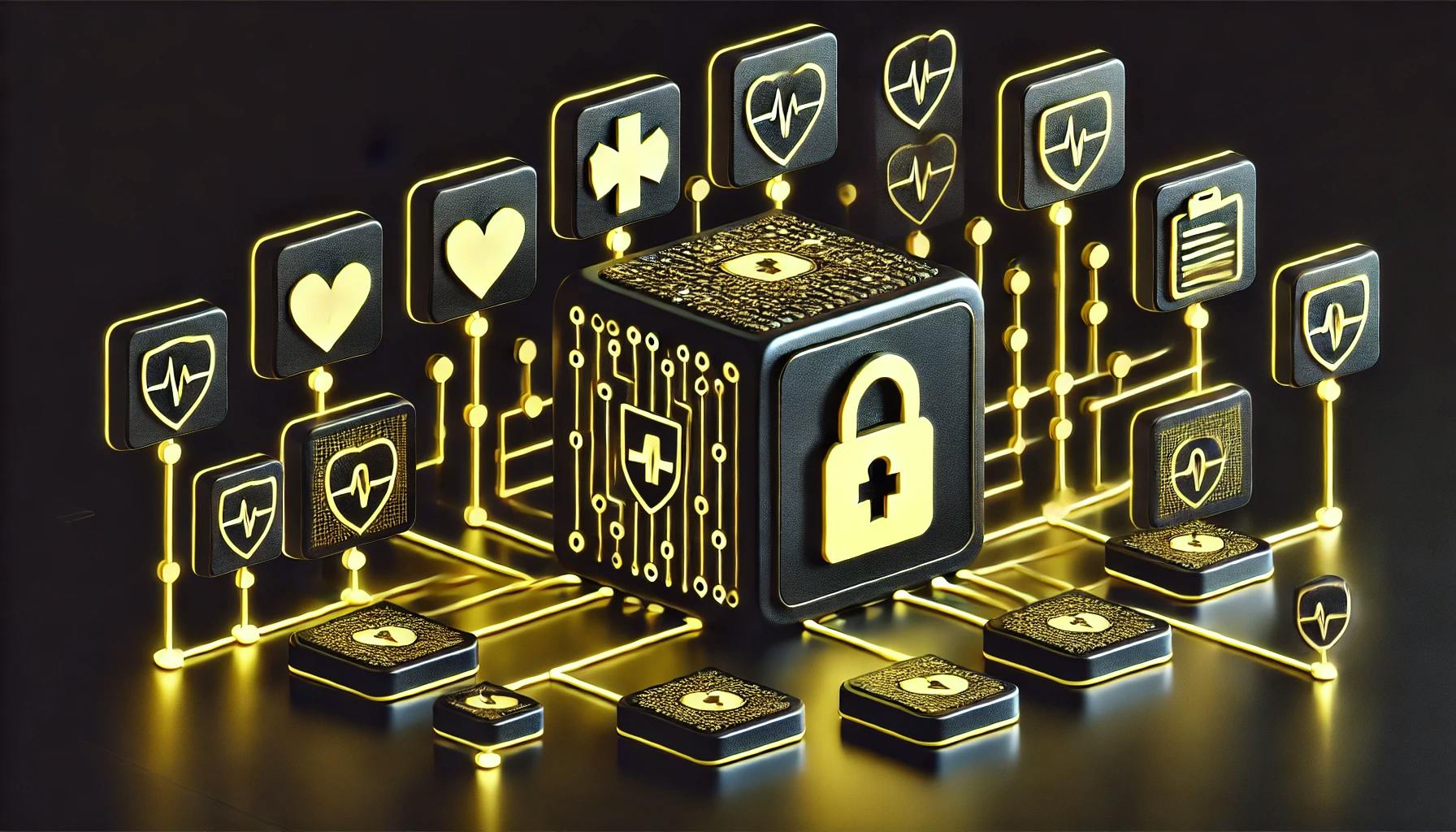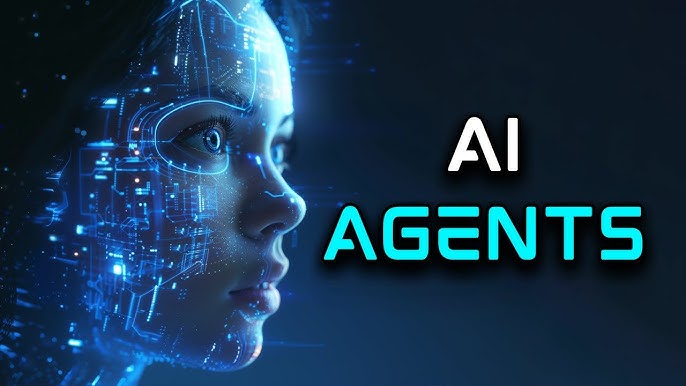Blockchain technology improves healthcare data security and patient privacy by decentralizing records, ensuring data integrity, and enabling patient control over sensitive information.
As healthcare increasingly relies on digital solutions, data security, and patient privacy have become more critical. From EHRs to telemedicine, the amount of data generated in healthcare is enormous, increasing the risks of breaches, unauthorized access, and privacy violations. Originally created for secure financial transactions, blockchain technology is emerging as a promising way to address these challenges, offering innovative methods to protect healthcare data.
Blockchain's core features—decentralization and immutability—enable it to store data across a distributed network, preventing any one entity from having control and ensuring that once data is recorded, it cannot be altered. This can transform how patient data is stored and accessed in healthcare. For example, if patient health records were stored on a blockchain, it would be nearly impossible for hackers to tamper with the data. Simultaneously, patients would control who accesses their information, allowing them to share data with healthcare providers without sacrificing privacy.
Current Challenges in Healthcare Data Security
Traditional healthcare data systems are centralized, with hospitals, clinics, and insurance companies storing sensitive patient information in local databases. This centralized approach creates vulnerabilities. A hacker who accesses one maindatabase could potentially steal millions of patient records. In recent years, the healthcare sector has experienced significant breaches, exposing critical information like medical histories, insurance data, and social security numbers.
Additionally, there is a lack of patient control. After patients share their information with healthcare providers, they often have little visibility or control over who accesses it, how it's used, or where it's stored. Fragmentation across various platforms also makes it challenging to maintain data consistency and security. Blockchain offers a solution by providing a more unified, secure, and transparent framework for managing healthcare data.
Blockchain in healthcare can be compared to a secure medical "ledger" that all stakeholders can rely on. Just as no single bank controls Bitcoin, no single entity would control patient health records. Each healthcare provider would have access to an updated version of a patient's history while the patient maintains control over access. This shift towards decentralization offers not only better security but also improved patient privacy.
Current Challenges in Healthcare Data Security
Traditional healthcare data systems are centralized, with hospitals, clinics, and insurance companies storing sensitive patient information in local databases. This centralized approach creates vulnerabilities. A hacker who accesses one maindatabase could potentially steal millions of patient records. In recent years, the healthcare sector has experienced significant breaches, exposing critical information like medical histories, insurance data, and social security numbers.
Additionally, there is a lack of patient control. After patients share their information with healthcare providers, they often have little visibility or control over who accesses it, how it's used, or where it's stored. Fragmentation across various platforms also makes it challenging to maintain data consistency and security. Blockchain offers a solution by providing a more unified, secure, and transparent framework for managing healthcare data.
Blockchain in healthcare can be compared to a secure medical "ledger" that all stakeholders can rely on. Just as no single bank controls Bitcoin, no single entity would control patient health records. Each healthcare provider would have access to an updated version of a patient's history while the patient maintains control over access. This shift towards decentralization offers not only better security but also improved patient privacy.
Cryptographic Security
Blockchain uses cryptography to secure data, providing an extra layer of protection for healthcare records.Cryptographic algorithms ensure that all data added to the blockchain is encrypted and only accessible to authorized parties. This is crucial in healthcare, where regulations like HIPAA demand strict safeguards for patient information.
Every time data is added to the blockchain, it is protected through cryptographic hashing, creating a unique digital fingerprint for each record or transaction. This ensures that even if the data is intercepted, it cannot be read or altered without the necessary cryptographic keys. Only authorized healthcare providers and patients with the correct keys can unlock and access the data.
A real-world example of cryptographic security in healthcare is MedRec, a blockchain platform developed at MIT.MedRec uses blockchain to securely manage medical records, employing cryptography to ensure that only authorized healthcare professionals can access sensitive data.
Real-World Applications
Several healthcare organizations are already leveraging blockchain to enhance data security. Guardtime has partnered with healthcare providers in Estonia to secure the country's entire health records system using blockchain. This system stores patient records on a decentralized blockchain, ensuring no unauthorized changes can occur while allowing patients to control access to their data.

Enhancing Patient Privacy with Blockchain
Patient-Controlled Health Records
One of the most significant benefits of blockchain in healthcare is its potential to give patients greater control over their health records. In traditional systems, once a patient shares personal and medical information with a healthcare provider, they often lose visibility and control over how that data is used, shared, or stored. Blockchain can reverse this dynamic, enabling patients to take ownership of their health records.
Blockchain technology supports patient-controlled health records, where individuals decide who can access their data and under what conditions. Patients can use blockchain to create a transparent, traceable system that logs every access to their health records. Whether a doctor, specialist, or insurer accesses the data, patients know exactly when, where, and why their information is being used.
Anonymization and Pseudonymization
Blockchain also enhances patient privacy through anonymization and pseudonymization techniques. In healthcare, protecting sensitive data while allowing for treatment tracking is critical. Blockchain allows healthcare providers to store anonymized health data on the blockchain, ensuring that patient identities are protected even when health records are shared.
Anonymization removes personally identifiable information (PII) from the health records stored on the blockchain, making it impossible for unauthorized users to trace the data back to a specific individual. Pseudonymization replaces PII with artificial identifiers, enabling healthcare providers to track treatments and outcomes without revealing patient identities.
Blockchain's pseudonymization is similar to how cryptocurrency transactions work. Just as Bitcoin addresses serve as pseudonyms for real users, healthcare providers can assign pseudonyms to patient records, ensuring privacy while maintaining continuity of care.
Blockchain Use Cases in Healthcare
Electronic Health Records (EHRs)
Blockchain can transform EHRs by making them more secure and interoperable and giving patients control. Currently,healthcare providers often use EHR systems that don't communicate effectively, leading to inefficiencies and higher risks of errors or data breaches. Blockchain could provide a decentralized platform where authorized providers can access encrypted patient records.
Patients would manage their health records, decide who can access their medical history, and allow for better continuity of care across different providers while eliminating fragmented systems.
Clinical Trials and Research
Clinical trials depend on data transparency, accuracy, and integrity. Blockchain ensures that trial data is accurate and unaltered, creating an immutable record. This is especially important in pharmaceuticals, where the integrity of trial data is essential for drug approvals and research publications.
Blockchain also helps researchers share data securely and transparently, tracking consent to ensure that privacy laws are followed and patients retain control over their data.
Drug Supply Chain Management
Blockchain can enhance the drug supply chain by verifying pharmaceutical authenticity and preventing counterfeit drugs. Every stage of a drug's journey, from manufacturing to distribution to the pharmacy, can be tracked on the blockchain, increasing transparency, reducing fraud, and improving patient safety.
Challenges and Limitations
Scalability Issues
While blockchain offers great potential for securing healthcare data, scalability remains a major challenge. As healthcare systems grow, the volume of data increases. Blockchain's decentralized nature may struggle to handle the large transaction volumes modern healthcare systems generate.
For instance, public blockchains like Bitcoin and Ethereum face significant scalability issues, leading to slower transactions and higher fees. Solutions like Layer-2 scaling and off-chain data storage could help address this.
Interoperability with Existing Systems
Healthcare providers today use a variety of legacy systems to manage patient data, billing, and insurance claims. One challenge with implementing blockchain in healthcare is ensuring interoperability with these existing systems, which can be complex and costly to integrate.
Blockchain needs to work seamlessly with EHR systems, health information exchanges (HIEs), and other platforms. Developing APIs and standards to enable blockchain communication with these systems is critical for widespread adoption.
Cost and Implementation Barriers
The cost of blockchain implementation can be prohibitive, especially for smaller healthcare providers. Blockchain requires significant computational resources, infrastructure, and expertise, which can be expensive.
In addition, adopting blockchain involves more than new technology—it requires staff training, updated processes, and sometimes overhauling existing systems. Governments and regulatory bodies may need to create new policies to manage blockchain's use in healthcare.
Future of Blockchain in Healthcare
Innovations and Emerging Technologies
Blockchain is part of a broader technological revolution in healthcare. As blockchain continues to develop, it will likely integrate with other technologies like AI and IoT, creating more secure, efficient, and intelligent healthcare systems.
Combining these technologies will build a robust digital infrastructure, improving patient care and streamlining healthcare operations.
Policy and Regulatory Considerations
For blockchain to achieve widespread adoption in healthcare, governments and regulatory bodies must develop clear policies and guidelines. Policymakers should define standards for data ownership, patient control, interoperability, and cross-border data sharing.
Widespread Adoption Potential
Though blockchain is in its early stages in healthcare, its potential for widespread adoption is clear. As more healthcare organizations explore its capabilities and successful pilot projects emerge, blockchain may become the go-to solution for securing healthcare data and ensuring patient privacy.
Conclusion
Blockchain offers a powerful solution to pressing healthcare challenges like data security, patient privacy, and trust. By decentralizing the storage and management of healthcare data, blockchain empowers patients, enhances security, and improves efficiency in healthcare systems.
While challenges like scalability, interoperability, and implementation costs remain, the future of blockchain in healthcare is promising. As technology evolves and policies catch up, blockchain will likely become a foundational element in healthcare's digital transformation. Blockchain's ability to protect patient data, ensure data integrity, and give patients control over their records is set to revolutionize healthcare, creating a more secure and patient-focused future.
Read here : 1.The Evolution of Blockchain Technology: From Bitcoin to Smart Contract
2. How Blockchain is Revolutionizing Supply Chain Management
For more information contact : support@mindnotix.in
Mindnotix Software Development Company


 AI-Taxi App
AI-Taxi App AI-Food App
AI-Food App AI-Property Mgmt App
AI-Property Mgmt App AI-CRM
AI-CRM AI-Fantasy App
AI-Fantasy App
 Web Development
Web Development App Development
App Development Business & Startup
Business & Startup Hire Developer
Hire Developer
 Digital Marketing
Digital Marketing Lead-generation
Lead-generation Creative Agency
Creative Agency Branding Agency
Branding Agency Augmented Reality
Augmented Reality Virtual Reality
Virtual Reality Internet of Things
Internet of Things Artificial Intelligence
Artificial Intelligence Blockchain
Blockchain Chatbot
Chatbot



